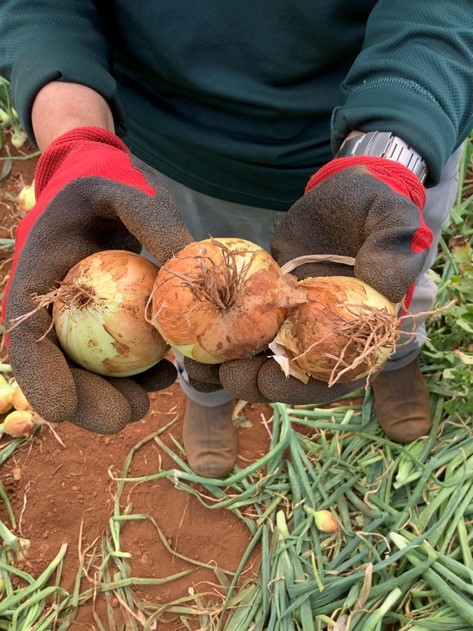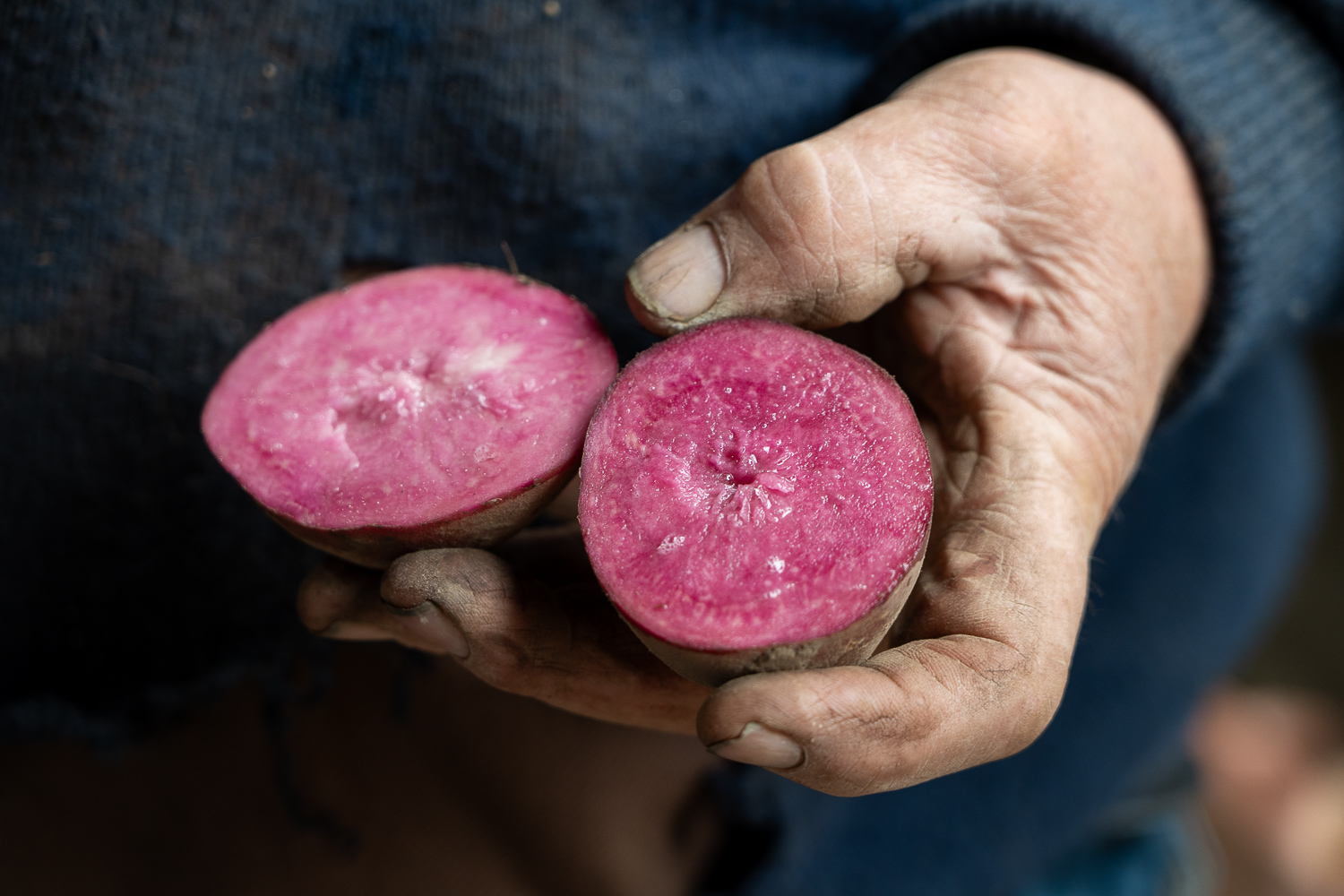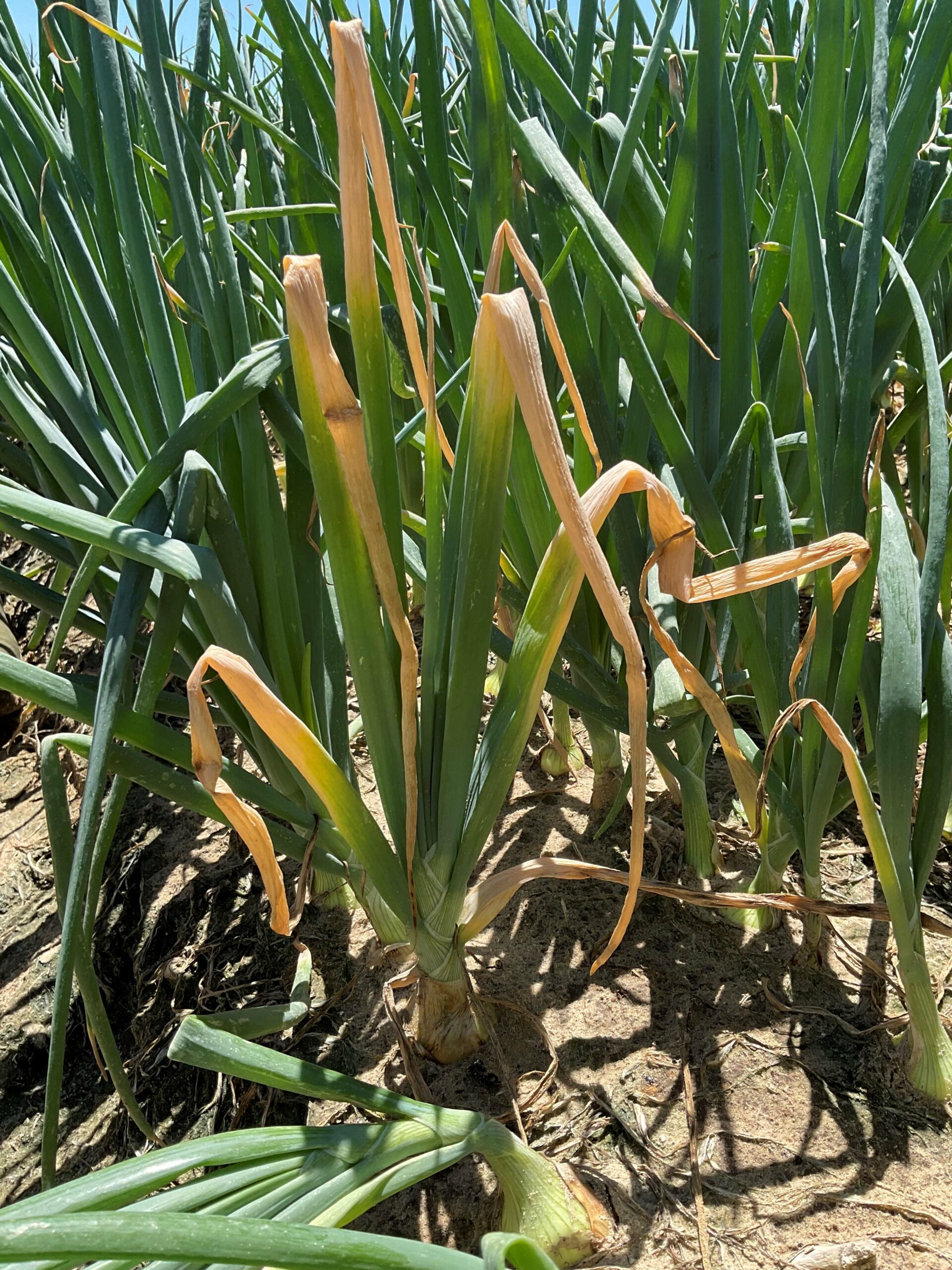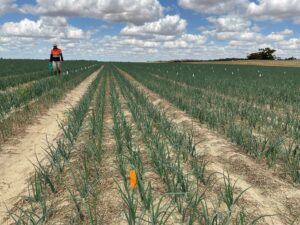
Developing strategies to inhibit Onion White Rot
24 May 2024
Simply Better crisps starts with high quality potatoes
24 May 2024The project Epidemiology and management of fusarium basal rot in onions (VN20006) aims to develop an integrated pest and disease management (IPDM) strategy to reduce the impact of fusarium basal rot in onions.
Infection of onion bulbs in the field by soil borne fusarium basal rot is known to result in substantial losses before harvest and in storage, however disease epidemiology was not well understood, which has limited the development of an appropriate management strategy.
In order to develop a best practice, cost-effective IPDM strategy, the project is working toward understanding of the pathogen and its epidemiology, and evaluate the use of cultural, biological and chemical controls.
Now in its final year, the project has identified Fusarium oxysporum f. sp. cepae (Foc) as the main cause of fusarium basal rot symptoms of onions in Australia.
During the 2022 and 2023 planting seasons, to understand key drivers of disease development, crops were monitored in paddocks that had a range of rotation and production practices, soil moisture conditions, and varieties. Incidence of bulb rot associated with Foc species ranged from nil to 55 per cent in monitored areas.
Testing of samples in the 2022 season at the five to seven leaf stage indicated that Foc infection can already have occurred, though may not be visually evident until late in the crop or storage. Subsequent testing this season has found some infection is already present at the one to two leaf stage, indicating control options may need to be applied at planting or early in the crop.
One key outcome of the research is that managing soil moisture to limit prolonged high or low soil moisture is required to optimise yield and reduce the risk of fusarium basal rot. Results from the first season of monitoring highlighted the impact that high and prolonged soil moisture can have on increased incidence of bulb rots caused by Foc and bacterial infection.
Trials and monitoring in the second season found that development of basal rot can also be favoured by persistent lower than optimum soil moisture through the duration of the growing season, that is at soil moisture levels at which some yield reduction occurs. In addition, while high and prolonged soil moisture supports basal rot development, continuously waterlogged conditions appear to be too wet for high levels of disease. Such conditions dramatically reduce yield and can favour bacterial rots.
The aggressiveness of Fusarium spp., including multiple Foc isolates, was assessed using three techniques (basal plate inoculation, injection into bulbs and injection in leaf scales) in controlled environment room studies. Results confirmed that inoculation with Foc produced similar symptoms to those visually identified in the field. Aggressive isolates were then used to screen chemistries for their ability to inhibit Foc infection of seedlings under controlled conditions. This assisted in selection of chemistries for field evaluation.
This season, field trials were set up to assess efficacy of products applied as seed treatments, in furrow or post planting band or boom sprays. Trials were conducted on mid to late season brown onions in centre pivot irrigated paddocks where inoculum of Foc had been confirmed in the soil by pre-plant DNA testing. These trials have provided promising results with some treatments that support progressing towards commercial availability.
The final phase of the project is to complete the assessments of the 2024 harvest samples, including after ambient storage of bulbs. Project findings including on soil moisture, nitrogen nutrition, rotation management, timing of management strategies will be incorporated into a new version of the fusarium basal rot management guide.
This project has been funded by Hort Innovation, using the onion research and development levy and contributions from the Australian Government. Hort Innovation is the grower-owned, not-for-profit research and development corporation for Australian horticulture.
This article first appeared in Australian Grower Winter 2024 magazine


